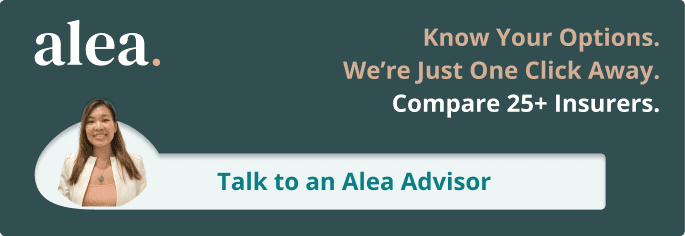



Self-employed? Here are 5 reasons you need health insurance
18th June 2024


As a self-employed person in Hong Kong – or freelancer, gig worker, independent contractor, sole trader, or digital nomad – you enjoy a certain freedom. You’re your own boss. You control your own time. You get to pick and choose your projects and clients. You might even get to work from anywhere in the world. A coffee shop in Sham Shui Po, a beach in Thailand, a coworking space in New York, a dreamy cabin overlooking the Italian Alps…
Between marketing your services, meeting clients, budgeting, invoicing, accounting, filing paperwork, and doing actual work, there’s one thing you must not overlook: your health insurance.
1. Health insurance lets you plan your finances and prepare for the worst
Taking out a health insurance policy takes the guesswork out of financial planning because it protects you from expensive surprises from unexpected medical bills. In case you fall ill or get injured, health insurance covers your medical expenses, like hospitalization, doctor visits, surgery, checkups, medications, and other medical services.
All health insurance plans have an inpatient benefit, which covers the costs you might incur if you’re admitted to the hospital. These include consultations, diagnostic tests and scans, hospital room and board, anesthesia, surgery, operating theater costs, intensive care, medication, and rehabilitation. The inpatient benefit also includes outpatient surgery costs such as cataract surgery and medically necessary mole removal.
Next, most health insurance plans also include an outpatient benefit (also known as the clinical benefit). This covers costs for items that don’t require you to be admitted to the hospital, like doctor and specialist consultations, diagnostic tests and scans, minor treatment, medication, physiotherapy, vaccination and complementary medicine like traditional Chinese medicine.
Optional benefits you can add on top of inpatient and outpatient include dental, annual health checkups, optical, maternity and mental healthcare. It’s helpful to note that international plans tend to have more comprehensive coverage for mental health, including psychiatric and psychological care, while local plans usually only cover psychiatric care.
2. Health insurance gives you options in Hong Kong’s private healthcare sector
While Hong Kong has an excellent and relatively affordable public healthcare sector, wait times are notoriously long – especially if you’d like to see a specialist. (At the time of writing, the longest wait time for a stable case to see a specialist eye doctor in Kowloon West is over 200 weeks.)
Fortunately, Hong Kong’s private healthcare system – the second best in the world – is a great alternative. With just a quick phone call, you can get a next-day consultation with a specialist. Hong Kong’s private health services, compared with their public counterparts, are more efficient, more comfortable, and less crowded… but also more expensive. To give you an idea of the price difference, it costs HK$ 500 - HK$ 950 to see a general practitioner in the private sector, whereas the fee for general outpatient services is HK$ 50 per attendance in the public sector.
That’s why a medical insurance plan is essential. It grants you the freedom to choose between public and private healthcare and the ability to bypass long wait times that can leave you feeling anxious about your health.
3. The hospital cash benefit can compensate for lost income if you’re hospitalized
According to Hong Kong law, employers are required to take out ECI for all employees to cover occupational disease, injury or even death arising out of or during the course of employment. ECI includes coverage for medical bills and rehabilitation costs, as well as compensation for income loss. This means if you’re self-employed, any injury or occupational disease you sustain during the course of your work will not be covered by ECI.
That’s where an optional hospital cash benefit can be handy. To ease the financial burden from income lost during hospitalization, some medical insurance plans have an optional hospital cash benefit, which pays out a set amount of cash according to the number of days you’re hospitalized. (Remember, your plan’s inpatient benefit will cover your hospitalization fees.)
Be sure to check the terms of your policy to verify the conditions of using the hospital cash benefit. For example, you might only get the payout if you stay at a public hospital. Additionally, the cash benefit might not be paid out if your hospitalization is related to a pre-existing condition.
4. International health insurance plans cover you in other parts of the world
Whether you’re Zooming with your colleagues from a log cabin in Niseko or messaging clients from a beach in Bali, if you spend significant amounts of time overseas, an international health insurance plan is as essential as your passport. Although international plans have more expensive premiums than local plans, you get what you pay for.
Not only do these plans cover you in more territories – Asia, Worldwide, or Worldwide excluding the U.S. – their coverage is also much more generous than local plans, which tend to have strict sub-limits on their benefits. Whereas you might have to pay for a big chunk of a major medical treatment under a local insurance policy, an international plan will cover you fully (up to the annual limit).
What’s more, international health insurance plans have extensive medical service provider networks, granting you access to carefully vetted high-end medical facilities not just in Hong Kong, but all over the world. On top of that, if you (knock wood) must be hospitalized, a high-end insurance company handles all of your hospital paperwork for you, so you can focus on your recovery.
5. If you get health insurance when you’re young and healthy, any conditions you develop as you age will be covered in the future
Typically, if you work for a company, your employer will provide you with employee benefits, including a group medical insurance plan. One of the biggest differences between group and individual medical insurance plans is how they treat pre-existing conditions, that is, any illness, condition, or disease that you have had – for which you may or may not have received treatment – before the start of your health insurance policy. Common pre-existing conditions are eczema, diabetes, hypertension and asthma.
Group medical plans usually cover pre-existing conditions. On the other hand, with individual health insurance plans, it can be difficult to get pre-existing conditions covered. The insurance company will either consider them as a policy exclusion or cover them with a premium loading applied.
If your pre-existing condition is listed as a policy exclusion, then the insurer won’t cover claims related to the condition, and you will pay the standard premium according to your age, sex, and whether or not you smoke.
If the insurance provider agrees to cover your pre-existing condition, then they will impose a premium loading. This means the insurer will cover claims related to that condition, but you will have to pay a higher premium to get this coverage.
That’s why the best time to get health insurance is when you’re still young and healthy, before you develop any medical conditions. This is the best way to lock into coverage at a lower premium. Because the older we get, the more likely it is that we will develop health conditions that expose us to a higher risk of policy exclusions and more expensive premiums.
How do I choose the right plan?
Here are some questions to consider when you evaluate your options.
- Do you need a plan that covers you overseas? If so, where?
- What benefits do you want in your plan? (inpatient, outpatient, optional benefits, etc.)
- What is your budget?
Talk to an insurance advisor or broker
One of the smartest, most pain-free ways of finding the right insurance plan for you is to talk to an insurance broker or advisor. After consulting with you about your insurance needs and budget, they can gather quotations from different insurance companies and present them to you. Not only does this save you a lot of work, you’ll also be able to ask them any questions you might have along the way. This way you know exactly what you are paying for before you sign any documents.
The best part? The service is completely free.
Looking for life or health insurance for yourself, your family or your team?
Do you already have an insurance policy? You could find a better plan!
Alea brings you choice, unbiased advice and outstanding service, with access to 100+ options from 25+ insurance companies. If you already have an insurance policy, switching insurance policies with Alea doesn’t cost you a thing.
Get free quotes with us today.
An advisor will be in touch to answer all your questions!
This article was independently written by Alea and is not sponsored. It is informative only and not intended to be a substitute for professional advice and should never be relied upon for specific advice.

